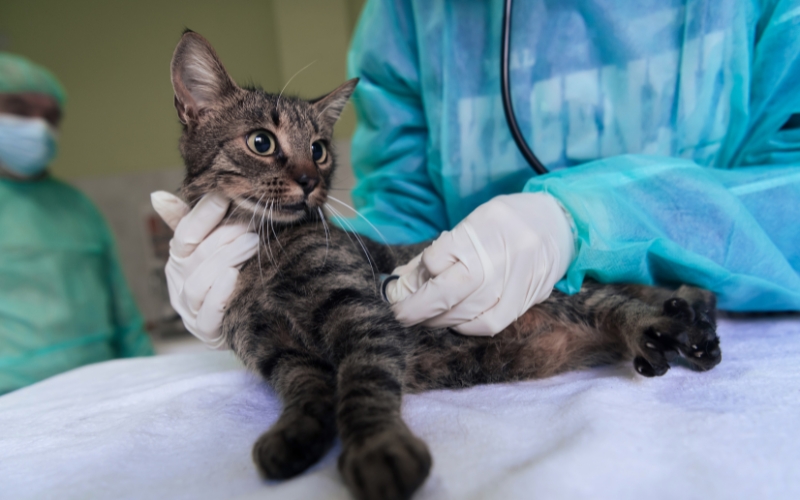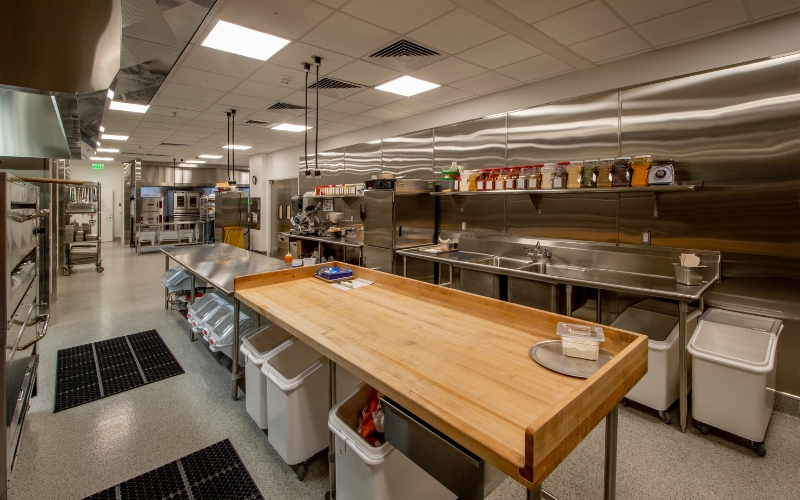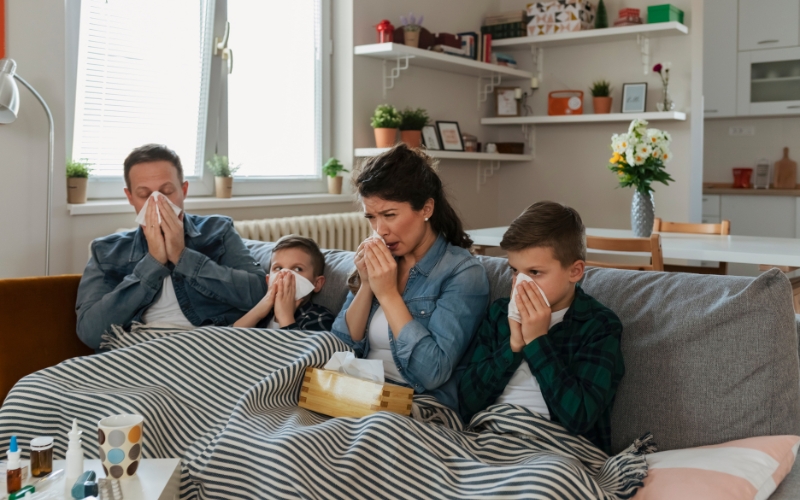When considering veterinary clinics, those caring for animals and their essential role in maintaining animal health come to mind. One overlooked aspect is indoor air quality (IAQ) within these facilities. The significance of maintaining a clean and safe environment for both the animals and the staff cannot be overstated.
Why Indoor Air Quality Matters
This isn’t anything new if you’re visiting this blog, but indoor air quality is critical in all settings, particularly healthcare. Veterinary clinics are no exception. These environments deal with various pathogens, allergens, and odors that can compromise the health and comfort of the animals and the humans caring for them. Poor IAQ can lead to respiratory issues and the spread of infectious diseases. This is all not to mention the overall decrease in the well-being of patients and staff.
Animals, in particular, are vulnerable to poor indoor air quality because of their heightened sense of smell and the fact that many spend so much time in confined spaces. This makes the air they breathe even more critical to their health and recovery. Consider an animal with an existing respiratory condition or one recovering from surgery. Those animals are at higher risk when exposed to airborne contaminants.
Common IAQ Challenges in Veterinary Clinics
Veterinary clinics face challenges that aren’t seen in many other environments. Because of that, maintaining good IAQ can be difficult. These include:
- High Foot Traffic: With a constant flow of animals and their owners, there’s an increased risk of bringing in outside contaminants, such as pollen, dust, and other pathogens.
- Odors: The mix of animals, cleaning products, and medical procedures can create strong and persistent odors that are difficult to manage.
- Pathogens: Veterinary clinics are prone to the presence if airborne bacteria, viruses, and fungi that can spread diseases among animals and humans.
- Chemical Exposure: Cleaning agents, disinfectants, and other chemicals used to maintain a sterile environment can contribute to indoor air pollution if not properly managed.
Strategies for Improving IAQ
Improving and maintaining good IAQ in veterinary clinics (and almost anywhere) involves a multifaceted approach:
- Ventilation: Ensuring proper ventilation is crucial. It helps dilute and remove airborne contaminants.
- Regular Cleaning: Consistent and thorough cleaning practices are essential. To avoid introducing harmful chemicals into the air, it is important to use non-toxic, pet-friendly cleaning agents.
- Humidity Control: Maintaining optimal humidity levels can prevent the growth of mold and mildew, which can negatively impact air quality.
- Odor Management: Using odor-neutralizing products that are safe for animals can help maintain a pleasant environment. It’s also important to regularly clean and maintain HVAC systems to prevent the buildup of odors.
- Advanced Air Purification Technology: Incorporating advanced technologies designed to improve air quality can make a significant difference. Dry Hydrogen Peroxide (DHP®) technology, as patented by Synexis, works to actively reduce airborne pathogens and contaminants in real time.
Benefits of Good Indoor Air Quality in Veterinary Clinics
Maintaining good indoor air quality in veterinary clinics offers numerous benefits. It can lead to faster animal recovery times, a safer working environment for staff, and a more pleasant experience for pet owners. On a broader scale, it can help reduce the spread of infectious diseases, ensuring that the clinic remains healthy for all who enter.
In the long run, investing in indoor air quality is about far more than just compliance or comfort. It’s about safeguarding the health and well-being of everyone in the facility. By taking proactive steps, veterinary clinics can create an environment where animals can heal and thrive and where staff can work with peace of mind.
Veterinary clinics play a crucial role in our communities by providing essential healthcare to our pets. Ensuring these environments maintain high IAQ is vital iin their operation, which directly impacts animals’ and humans’ health and safety. By implementing effective strategies like Synexis’ patented DHP technology, veterinary clinics can continue providing the best possible care in the safest environment.
To speak with an IAQ expert from Synexis, fill out this form and we’ll be in touch as soon as possible.
And to learn more about Synexis, click here.








